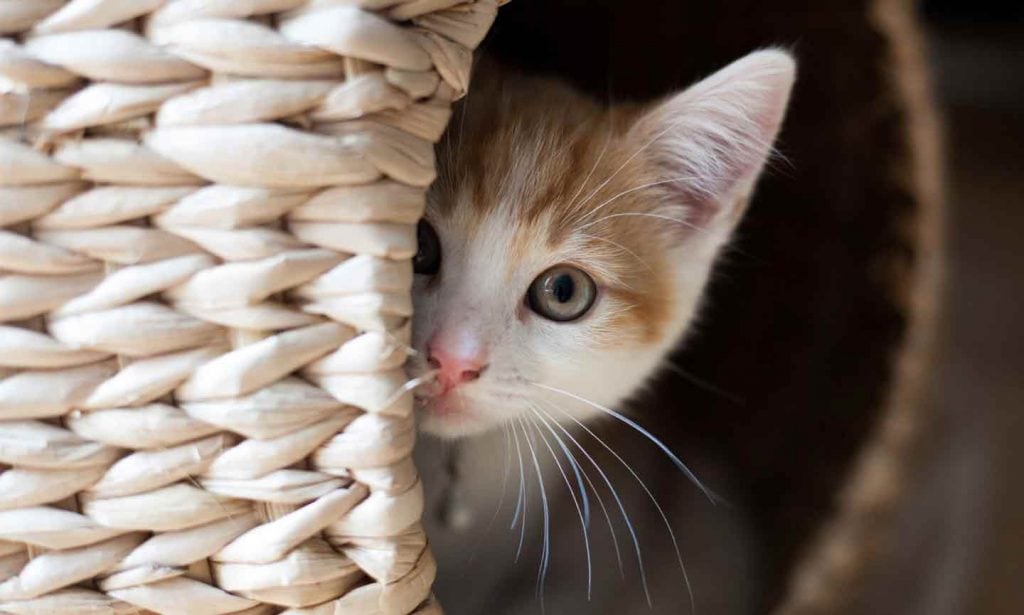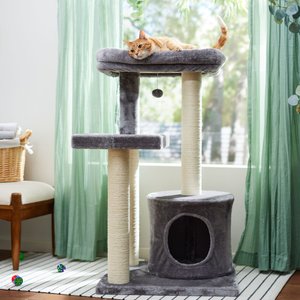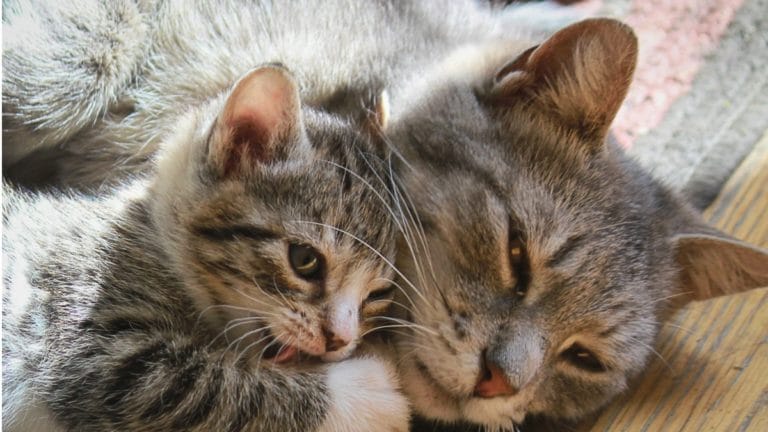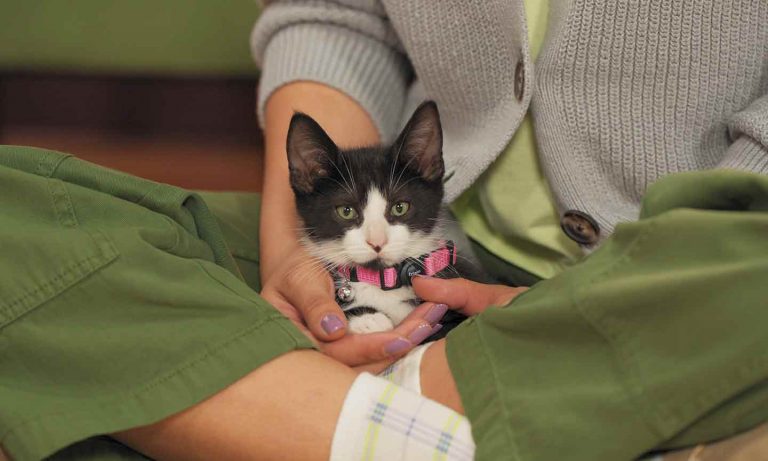Kittens come in all sizes, colors and personalities. Some are outgoing, and some are more timid. A little bit of shyness or fear is perfectly normal, but if kittens are not properly socialized, they can become too fearful. But if you’ve got a scared kitten on your hands, don’t fret—we’ve got tips and tricks to help them overcome their fear.
In This Guide
Why Is My Kitten So Scared?
If you put yourself in your kitten’s shoes, it’s easy to imagine how their fears can develop—the world is so big, and they’re so small! But there’s more to most kittens’ fears than just that.
Kittens need proper socialization, aka stress-free introductions to a variety of people, places and things. This helps them learn the difference between unexpected surprises and serious threats to their safety. And while socialization is a lifelong process that you’ll continue after you bring your new kitten home, it’s especially important when your kitten is between 2 and 7 weeks of age, also known as their prime socialization period or socialization window. Knowing what your kitten was exposed to during the socialization window (and how positive or negative their life experiences were at the time) will give you valuable clues to help you understand their fears and how to help them overcome them.
If your kitten has positive experiences during the socialization window, they’re less likely to act shy and fearful, says Dr. Elizabeth Chapman, DVM, of Just Cats Clinic in Reston, Virginia. But negative experiences, or a lack of new experiences, have the opposite effect, often leading to anxious or fearful behavior. “That’s why socialization is critical at this age of development,” Arguelles says.
What If I Missed the Socialization Window?
If you have a shy or fearful kitten who’s missed the prime socialization window, it’s not too late! Dr. Chapman explains how you can help your kitten overcome their fears in their early years.
“If the kitten is under seven weeks of age, continued positive experiences and socialization will gradually help,” she says. “If they’re past the seven week mark, cat parents will have to work with the kitten slowly to build trust and develop a relationship. Keeping a routine, talking to the kitten, gentle petting and treat or cat food rewards can help strengthen the bond.”
6 Tips to Help Your Kitten Overcome Their Fear

1Stick to a schedule.
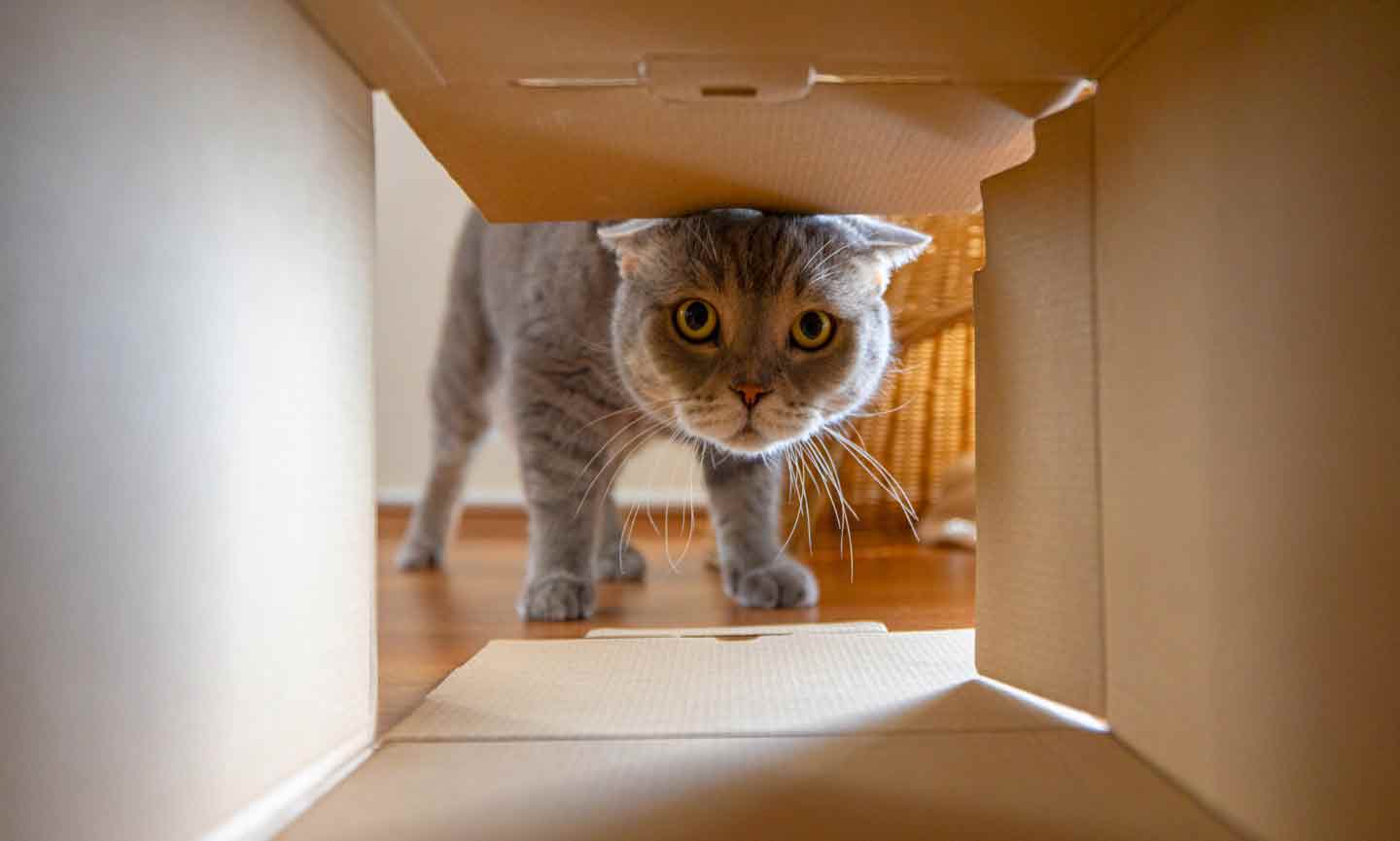
2Slowly introduce new experiences.
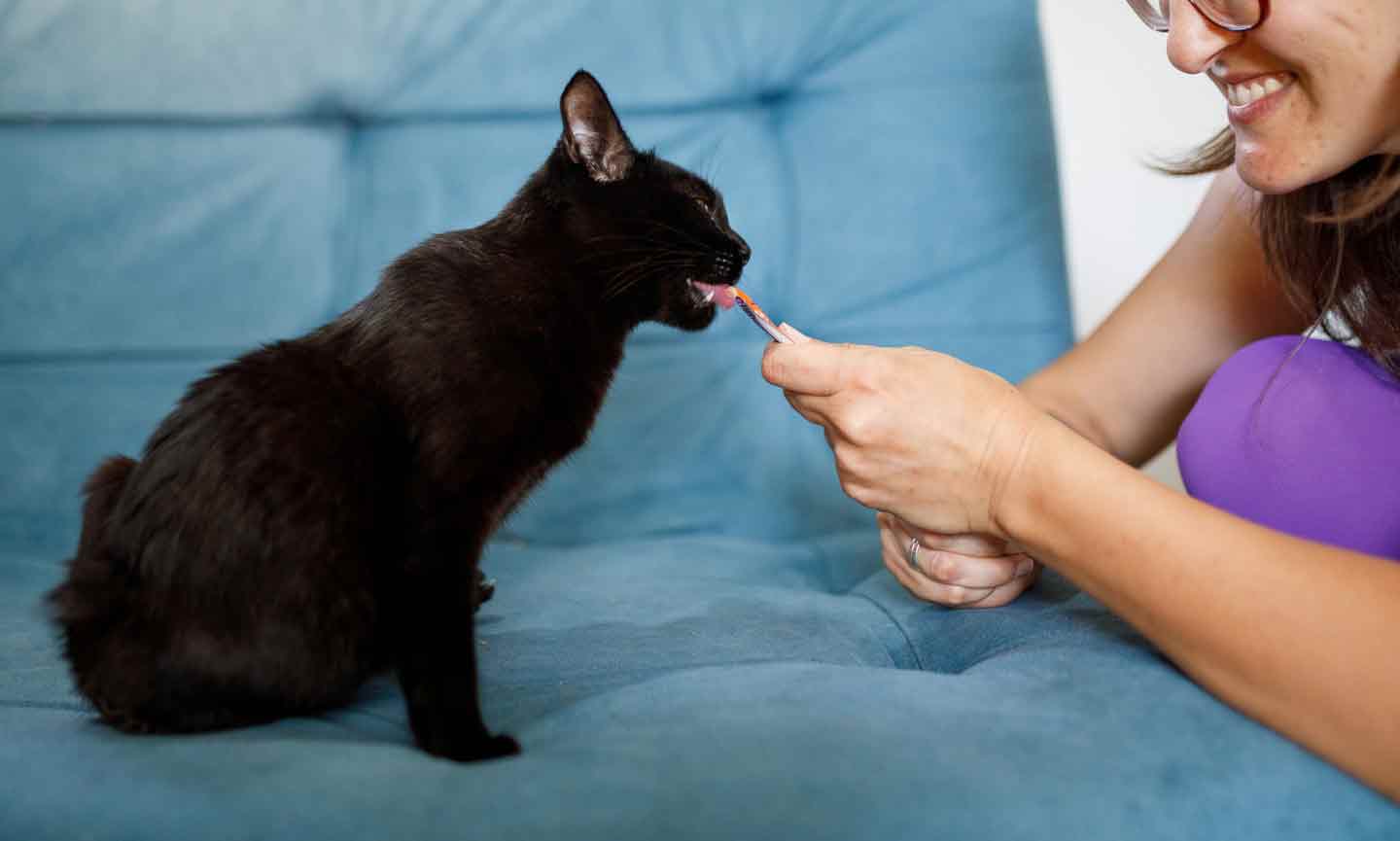
3Reward your cat for their bravery.

4Remove your kitten when they’re overwhelmed.

5Comfort your kitten.
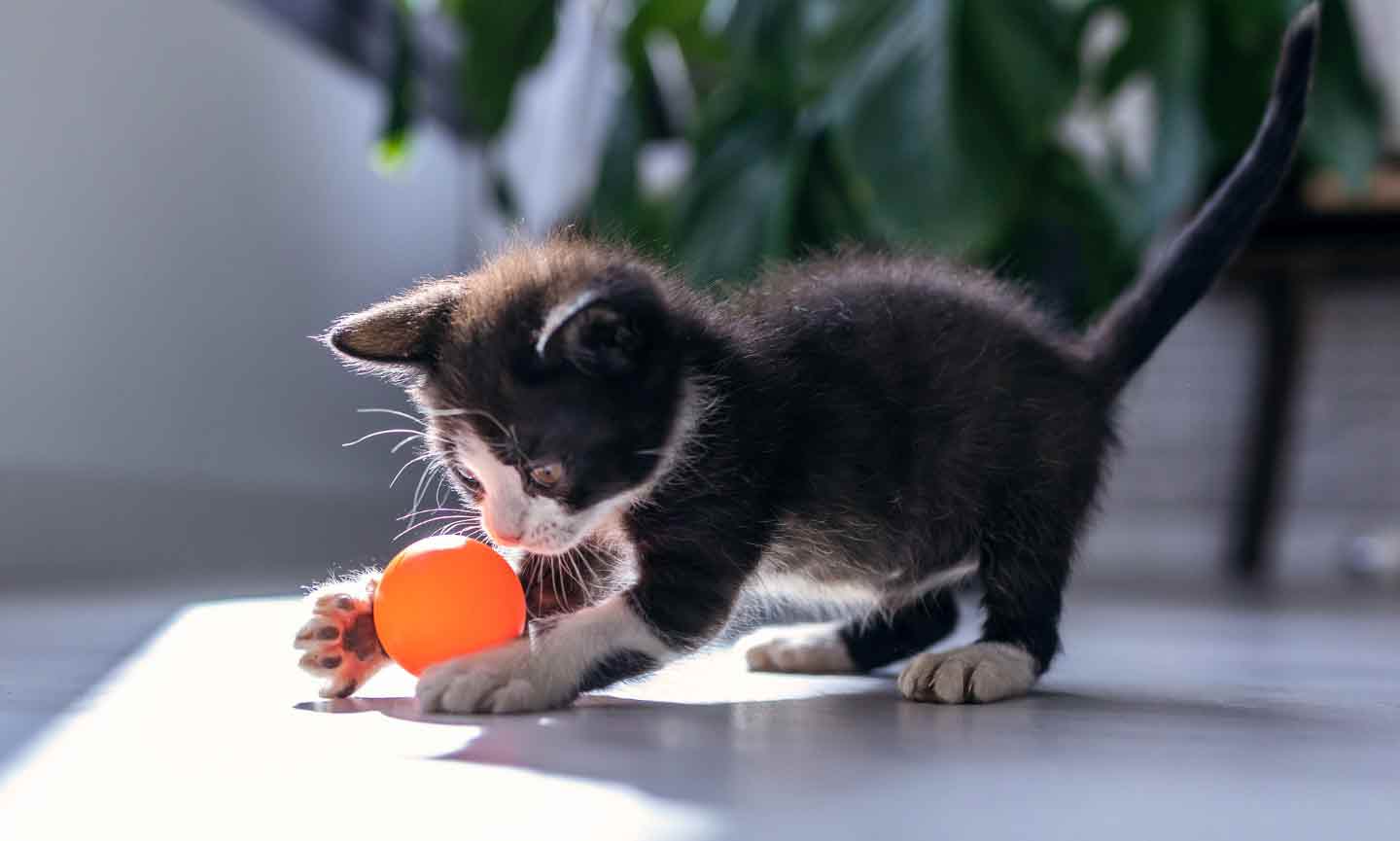
6Redirect your kitten’s attention.
Creating a Calm Environment for Your Kitten

Like many pets in a new environment, kittens are often scared when first entering their new home. “Some kittens are super chill, super laid back,” says Dr. Marci L. Koski, a certified feline behavior and training consultant at Feline Behavior Solutions in Vancouver, Washington. “They're out to explore everything. But many kittens are afraid of things.”
As pet parents, we try our best to make them feel safe, but creating a calm environment for your kitten is key.
- Dedicate a small room to your kitten. Create a safe place for your fearful cat. Let them surround themselves with their own scent. You want to have lots of fabric and things that can absorb your new cat’s scent. If you have a carpeted room or a room with rugs, that’s ideal.
- Give your kitten a resting area/bed. Whether it be a human bed they can lay on, a couch, or their own cat bed, this is crucial. Kittens crave cozy nooks.
- Provide a den. Speaking of cozy nooks, a covered cave or den can also provide your cat a sense of safety. This can be as simple as providing them with a box or draping blankets over sturdy chairs with legs to make a little cat tent—but you can also browse some super-cute cat den options here.
- Have a look, don’t touch zone. Your kitten will likely pick out a quiet room or area of your home where they like to go when they feel afraid—think of it as a safe space. Respect this a no-touch zone. When your kitten is there, they want private time, time to relax and feel safe.
Calming Solutions for Kittens

There are plenty of products to help your kitten feel more at ease, too, including:
- Pheromone diffusers and sprays: Feliway plugs use pheromones to help your kitten feel a little bit safer and more secure in their environment. You can also opt for a pheromone spray. “Especially when a kitten first comes in, it might be helpful to spritz cat beds a couple of times a day,” Koski advises. “Remember that cats don’t like the smell of alcohol, so let it dry before exposing the cat to the scent.”
- Heated mats and beds: In addition to scent, cats are quite responsive to warmth. A heated cat mat or bed could provide that comfort they crave.
- Soothing sounds: A lot of cats are reactive to loud noises, especially in an unfamiliar place, so playing some calming music on a low volume can help. Studies have shown that cats like classical music. “You can even go to YouTube and do a quick search for cat calming music, and you’ll find playlists that last for hours.”
- Hiding places: When kittens are scared, their instinct is to hide. Hiding places like cat shelves, nooks on a cat tree and even closets or small rooms allow your kitten to sit back and observe before they decide whether to approach. The Door Buddy latch allows a door to be opened just wide enough so a cat can run inside to their safe room, but not enough to allow larger dogs, children or other unwanted interlopers inside.
If you embrace your kitten guardian role with love and devotion, you’ll raise a kitten with confidence, reduce their fears and create a strong bond between you both—for life!
Need more calming tips? Find out how to get a hyperactive kitten to chill out.
Christine Borges contributed to this story.
More Kitten Tips
Share:
